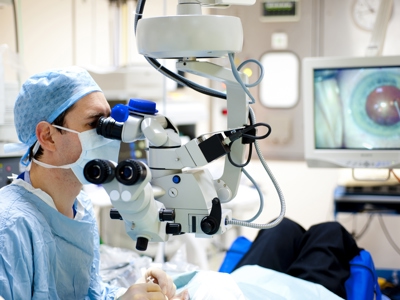
Ectopic pregnancies: How early diagnosis can save lives
Clinical Negligence solicitor Rebecca Ridgeon explains the dangers of delayed diagnosis of ectopic pregnancies and the need for more to be done to raise awareness and to ensure that women receive better care.
Posted on 05 May 2023
I found it concerning to read in the Guardian this week that dozens of women in the last five years have experienced avoidable harm or even died after being admitted to NHS hospitals with ectopic pregnancies, as experts continue to call for more education about the condition, both for healthcare professionals and the general public.
As a healthcare solicitor, I have acted on behalf of a number of women in the last few years who needed surgery for ectopic pregnancies which could and should have been diagnosed earlier.
If they had been diagnosed earlier, they could have been treated with medication alone. Thankfully, none of the women I have represented lost their lives as a result of their delayed diagnosis, but their experiences were life-changing in a number of ways.
What is an ectopic pregnancy?
According to the Royal College of Obstetricians and Gynaecologists, 1 in 90 pregnancies in the UK is ectopic.
An ectopic pregnancy occurs when an egg is fertilised but, rather than being implanted in the womb where an embryo can safely grow into a foetus, the egg implants elsewhere – usually in a fallopian tube.
Whilst referred to as a type of ‘pregnancy’ because it involves a fertilised egg (a factor which has recently caused controversy in several US states where total abortion bans have been implemented), it is impossible for an embryo to grow properly outside of the womb, so an ectopic pregnancy will never lead to a live birth.
Left untreated, however, as an ectopic pregnancy grows it can rupture a fallopian tube and cause serious internal bleeding and even death.
Symptoms of an ectopic pregnancy include vaginal bleeding, abdominal pain and pain in the tip of the shoulder and the condition can often be diagnosed with a positive pregnancy test and a simple ultrasound scan.
However, the most recent MBRRACE report into maternal deaths in the UK found that ectopic pregnancy is the leading cause of death in early pregnancy and, worryingly, that almost all of the women who died between 2018 and 2020 could have received better care, which might have led to survival in around a third of cases.
Why are women suffering avoidable harm from ectopic pregnancies?
The MBRRACE report found that, when women attended a healthcare facility with symptoms of an ectopic pregnancy, it was sometimes not even recognised that the woman was pregnant or, if there was a positive pregnancy test, the symptoms were sometimes wrongly attributed to miscarriage or a blood clot in the lung.
The latter misdiagnosis was particularly problematic, because it led not only to delayed diagnosis and delayed treatment of the ectopic pregnancy, but sometimes to inappropriate treatment with blood-thinners which can actually increase levels of bleeding.
In my own experience of representing women who have suffered complications following delayed diagnosis of an ectopic pregnancy in medical negligence claims, it seems that healthcare professionals do not always appreciate the urgency of a pregnancy which is potentially outside of the womb, choosing to continue monitoring a woman’s hormone levels over a period of days or sending them home without a confirmed diagnosis, wasting crucial time.
What are the consequences of delayed diagnosis and treatment?
If caught early, an ectopic pregnancy can often be treated with medication, but a delay in diagnosis increases the chance that surgery will be necessary – often a keyhole procedure but sometimes an open operation – and usually involving removal of the whole of the fallopian tube on the side where the egg implanted.
If an ectopic pregnancy ruptures the fallopian tube before treatment takes place, heavy internal bleeding can occur, which is when the condition can quickly become life-threatening.
Whilst, fortunately, death is a rare consequence of ectopic pregnancy in the UK, delayed treatment can lead to serious complications, which I have seen can have very upsetting effects.
As well as the impact of surgery itself, there is research which suggests losing a fallopian tube can have a negative impact on fertility in women who already have reduced fertility levels, who might therefore need IVF treatment to conceive in the future.
In addition, experiencing the terrifying and excruciating pain of a ruptured ectopic pregnancy or the need for emergency surgery can be extremely distressing for women and, in some cases, can even cause Post-Traumatic Stress Disorder.
At a time where health outcomes and inequalities for women in pregnancy and childbirth are finally being critically examined (as well as the persistent ethnic inequalities in maternal mortality rates, the MBRRACE report found that young and vulnerable women are disproportionately represented amongst those who died from ectopic pregnancy), it is vital that healthcare professionals listen properly to patients’ concerns, know the signs of ectopic pregnancy to look out for and are fully aware of the possible risks of delayed diagnosis and treatment.
Hopefully, with increased publicity, these tragic outcomes will lead to change and to better care for pregnant people in the future.

Rebecca Ridgeon
Rebecca Ridgeon is a senior associate solicitor in the medical negligence department.

Six figure settlement reached for man after complication of Optical Express laser eye surgery went undiagnosed for six months
A man, who we are referring to as Ali, has received a six-figure sum in compensation for negligent medical treatment following laser eye surgery at Optical Express.


